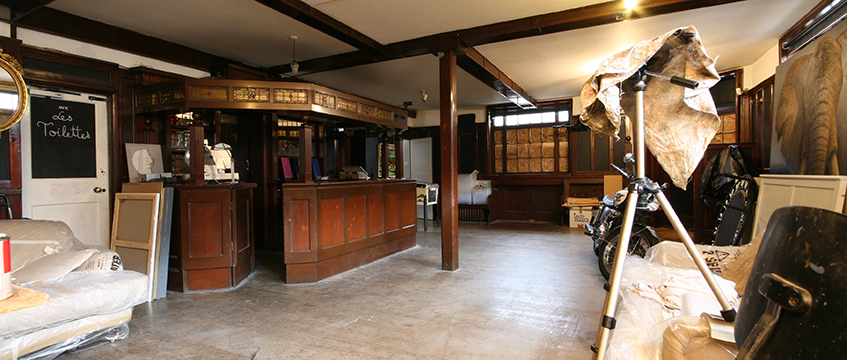Office space is being handed back by tenants. Shops stand empty. Construction starts have stopped. What’s a real estate owner to do?
Temporary uses for sites and buildings have been put in the spotlight as landlords seek to mitigate the costs of empty buildings and attract people back to places left deserted during lockdown.
Blackstone’s The Arch Company, for example, leased several railway arches on the South Bank to events firm One Night Records while a full overhaul of the site is worked out.
Here, EG explores some of the temporary options available to landlords.
TV and film production
Demand for filming space from the likes of the BBC, Disney, Apple and Netflix is soaring as they race to restock programme pipelines depleted during the spring lockdown and the public’s binge-watching of content.
Location Works, a film, TV, photo shoot and event location provider, has around 400 live enquiries on its books with between 10% and 20% long-term leasing deals for the next six months, owner and managing director Lorna Gatherer Ford tells EG.
These range from the use of a public toilet for a day to space needed for two months next year to create a hotel set and a requirement for an office building with parking for three months from May. Well-ventilated offices with parking are also being sought to house production teams.
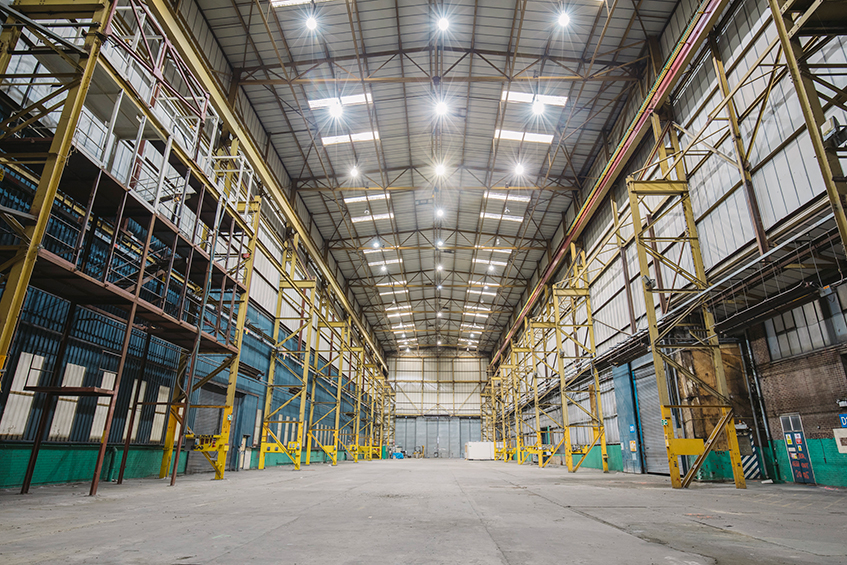
Recent deals by the firm have included booking Wembley Stadium for a shoot that will see the idle events spot masquerade as an airport.
Gatherer Ford explains that most spare space, including offices, hotels, restaurants, development sites and warehouses can be monetised in this way, although the larger the space the better due to social distancing requirements.
Properties usually need to be within filming hubs such as Bristol, Cardiff, London or Manchester due to the locations of equipment hire companies.
Depending on the type of shoot and length of requirement, property owners could earn between £1,000 and £5,000 per day, which should mitigate some losses from the space sitting vacant.
There is also benefit for the wider area, with filming crews of up to 200 people descending on a location.
Production firms will also pay for cleaning once they have finished. Gatherer Ford reckons space is generally returned to the landlord in a better condition than before.
Farming
With environmental, social and governance issues at the top of the agenda, another option for making use of empty space could be to create a farm within it.
Square Mile Farms’ co-founder and chief product officer, Patrick Dumas, says a non-meat farm can be established almost anywhere there is access to electricity and water.
The company operates a farm in the basement of Grosvenor’s London office, and in January will install a modular vertical farm outside at British Land’s Paddington Central campus for the local community, which will also provide workshops for the area’s schools.
“If there is some vacant space in the middle of a community, putting a farm in there is a productive use of that space – even if it is only temporary,” Dumas says.
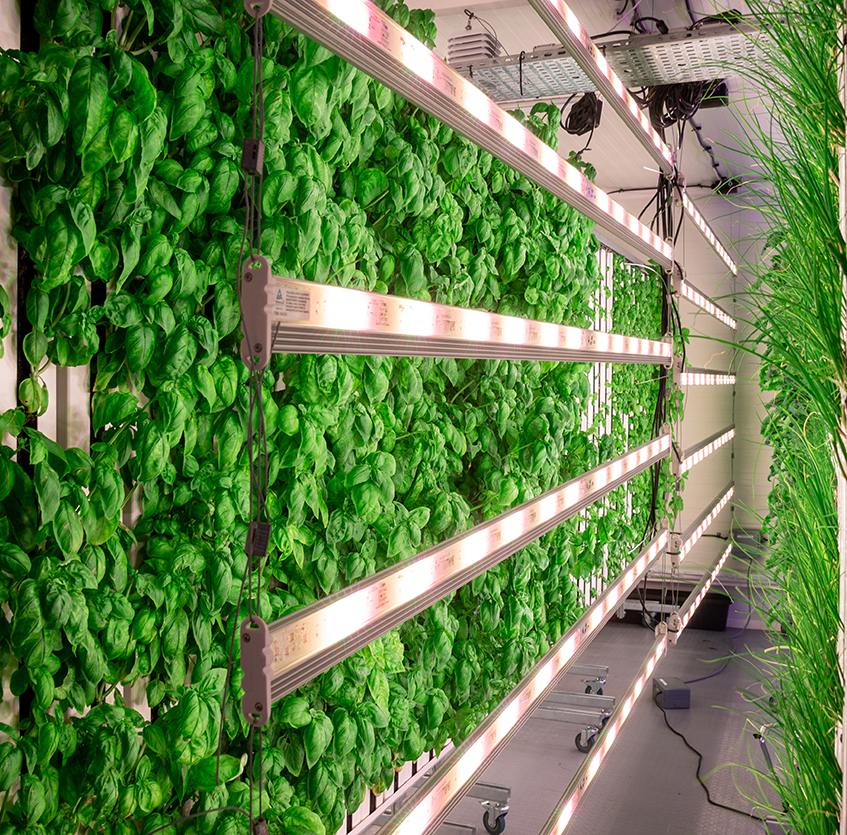
The installation of a farm in vacant space such as a shop – either as a commercial venture to provide fresh produce to the local area or as part of a community outreach programme by the landlord – could allow property owners to avoid paying rates on empty buildings, as well as engaging the local community.
Dumas also highlights the impact farms can have on the carbon footprint of a building given that waste CO2 and heat can be used to grow the food.
“Rather than pump CO2 out into the air, pump it into a farm in the building so that it gets recycled,” he says. “There is a big benefit to integrating a farm into a building as it’s a carbon sink.”
Pop-ups
Despite dire stories daily about the demise of retail, retail space rental agency Appear Here has seen demand jump by 45% since non-essential stores were allowed to open again.
The firm has seen a 25% hike in enquiries from food and beverage firms, a 15% rise from experiential and media brands, and an increase of 5% from health and wellbeing firms, according to Becky Jones, head of partnerships. Most of the health and wellbeing demand relates to Covid-19 testing or the production and supply of PPE.
“There was a month when every second thing that came through had a medical angle,” Jones says.
She now anticipates that the company will receive more such enquiries as the Covid-19 vaccine roll-out gathers pace.
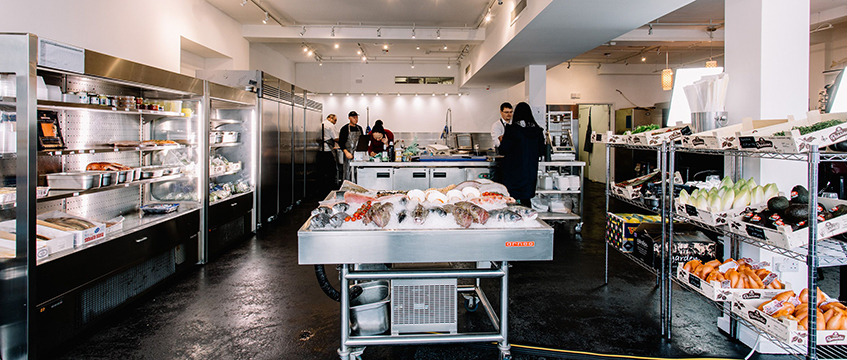
Demand is centred on places such as Brixton or Dalston, with large residential populations.
“Nine months ago, we would look at proximity to city centre – now it’s what is within a 15-20-minute dog walk or cycle ride,” Jones says, adding that brands are increasingly testing locations with campaigns across cities to find their audiences.
This is good news for property owners with vacant space in neighbourhood locations, although landlords must ensure they are providing what these brands need to operate easily and offering flexible leasing arrangements, Jones says.
“It’s about making it plug-and-play, particularly if brands are doing a campaign as they don’t want to have to deal with fixing up units,” she says. “It’s like getting a blank billboard for an ad – they want a store that’s a blank canvas.”
Appear Here is also looking into concepts for restaurants, which have been hit hard by forced closures during the pandemic.
Since the pandemic, more landlords have been getting in touch as they look to future-proof their properties. “They have been reaching out more and more and we have also been offered more projects in terms of development sites than we have before,” Jones says.
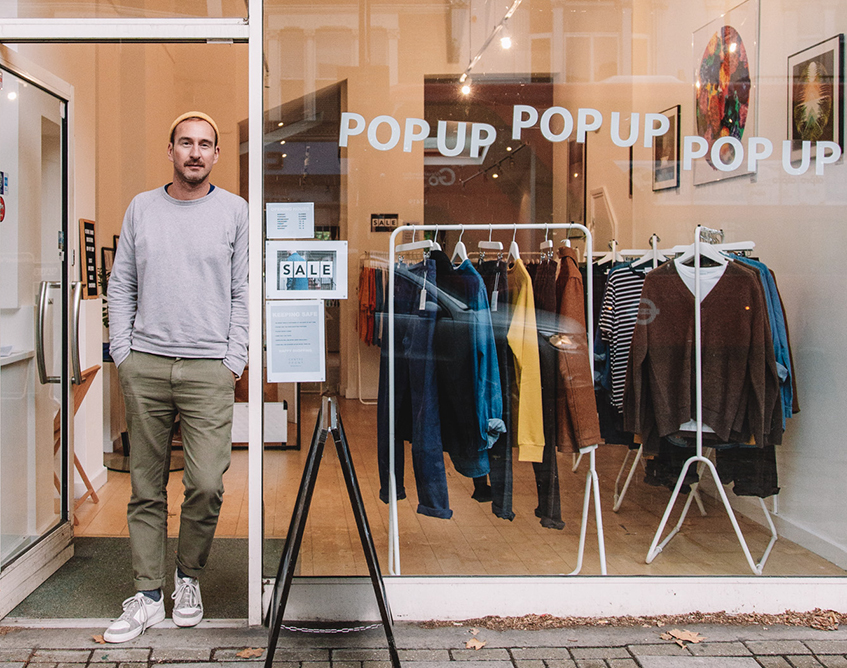
Property guardians
There are an estimated 10,000 property guardians across the UK, living in vacant properties at low rents.
A third of these are key workers such as teachers, police, medical staff and firefighters, according to Graham Sievers, chairman of the Property Guardian Providers Association. Another third comprises people from the creative sector, including photographers, artists and journalists.
The use of vacant space as temporary housing is under threat after the Court of Appeal ruled in December that the owners of now-demolished Ludgate House, SE1, could be required to pay Southwark Council more than £4.2m in business rates for the three-year period it was occupied by property guardians.
Property owners were already becoming cautious after the use of empty buildings as housing fell under new regulations aimed at the private rental sector, which require landlords to have HMO licensing and adhere to certain spatial restrictions, Sievers says.
“[Property guardianship] should be a win-win for everybody,” he says. “Guardians are able to live closer to where they work at almost half the equivalent of the private rental sector, while the property owner keeps the property from being vandalised and secured more cheaply than via traditional methods.”
He adds that not paying business rates should be a bonus for landlords given the costs of securing vacant properties. Local authorities also benefit from the use of property guardians as many of these people could join council housing waiting lists, he says.
“It seems like the government and local authorities are shooting themselves in the foot as there is a housing shortage and a dire need for more affordable accommodation,” he says of the potential changes to the process.
“Unfortunately, there are different agendas within councils and one hand doesn’t always know what the other is doing.”
But Sievers adds that for those landlords who feel disposed towards helping with housing – albeit temporarily for key workers and others – this is still a route to be considered: “It should be encouraged and supported as a force for good.”
To send feedback, e-mail louise.dransfield@egi.co.uk or tweet @DransfieldL or @estatesgazette







